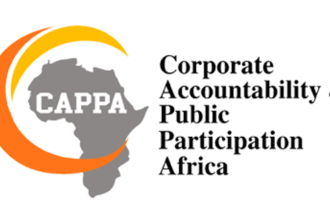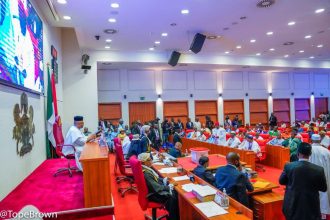By Our Reporter
The Federal government has insisted that reducing salt in foods and improving labelling are not merely health interventions but that they are sound economic investments.
The Special Adviser to the President on Health, Dr. Salma Anas, stated this at a media interaction to commemorate the World Food Day 2025, in Abuja, yesterday.
She reiterated that poor nutrition undermines productivity and inflates healthcare spending, noting that healthier citizens will strengthen the country’s workforce and drive national development.
Dr. Salma further noted that Front-of-Pack labelling gives consumers clear, visible information so families can easily recognise foods that are high in salt, sugar, or unhealthy fats and make healthier choices.
“Simple symbols and mandatory sodium declarations on nutrition panels drive transparency, strengthen consumer confidence, and create a market incentive for producers to reformulate.
“Mandatory sodium limits protect those who cannot easily change behaviour by ensuring the food environment supports healthier defaults. Together, these policies make it easier for every Nigerian to see, know, and choose what they eat,” she said.
The President’s Adviser further argued that food industry holds a critical role in this transformation, stressing that: “Reformulating products and adopting responsible labelling practices can spur innovation, build consumer trust, and create new market opportunities; thus, companies that align with Nigeria’s sodium standards will gain a competitive advantage locally and internationally.
“The Presidency encourages industry stakeholders to view compliance with sodium reduction standards as a pathway to growth rather than a constraint.”
While pledging that the government will continue to provide the necessary leadership, coordination, and regulatory muscle across all relevant ministries and agencies, especially NAFDAC, she called on industry leaders to embrace reformulation and responsible marketing as an opportunity for innovation, and view the upcoming regulations as a chance to demonstrate your commitment to consumer health.
She also called on the Civil Society Organisations and Development Partnersto sustain advocacy, monitor implementation, and hold institutions and companies accountable for progress and continue technical and financial collaboration to support capacity, surveillance, and consumer education at scale.
“Let your health guide your taste. Begin to scrutinize labels, demand healthier options, and advocate for food that sustains life rather than disease,” Dr. Salma charged citizens.
Speaking, the Country Director, Network for Health Equity and Development (NHED), Dr. Emmanuel Sokpo, revealed that Nigeria is experiencing what he described as a “silent but growing crisis of diet-related non-communicable diseases.
Hypertension, heart disease and stroke are increasing at alarming rates, affecting people in their most productive years.”
According to him, the World Health Organization (WHO) identifies excess sodium intake as one of the leading dietary risk factors for these diseases and that evidence has shown that the average Nigerian consumes well above the recommended daily limit of 2,000 milligrams of sodium, roughly one teaspoon of salt.
This, he maintained, has significant consequences includng rising medical costs, reduced productivity and preventable deaths, further insisting that reducing sodium intake is therefore not only a health intervention but also a development priority that affects the economy and human capital.
On her part, the Cluster Lead, Disease Prevention and Control, World Health Organization (WHO), Dr. Mya Sapal, reiterated the commitment of the global body to supporting Members States to implement, monitor and enforce policies and other measures to ensure that every adult and child enjoys healthy food environments to realize their human right to safe, secure and nutritious food, and the highest attainable standard of health.
She, therefore, called on governments at all levels to adopt and implement standards for Front-of-Pack Labelling and marketing restrictions and improve surveillance on salt/sodium population intake, salt/sodium food content, and salt/sodium dietary sources.
She charged industry leaders to implement the National sodium targets and benchmarks, reformulate food products to contain less salt/sodium and that theCivil Society and consumers to advocate and demand for lower sodium in processed foods.
“We pledge our continuous technical support towards the successful implementation of sodium reduction strategy, Nutrition Profiling, Front of Pack labelling and monitor progress in doing so, by not only updating Country Score Cards and periodically publishing global progress reports, but also refining the algorithms, assumptions and methods used in these activities as new evidence and guidance become available,” the WHO Cluster Lead further said.


















